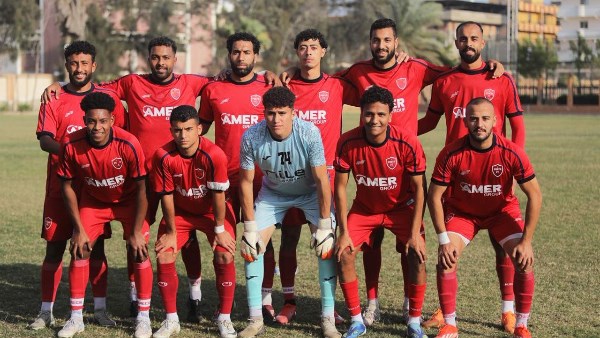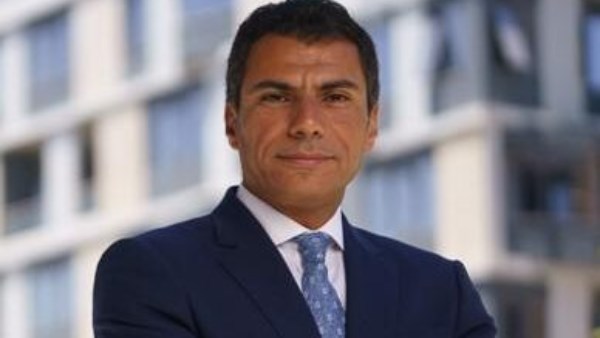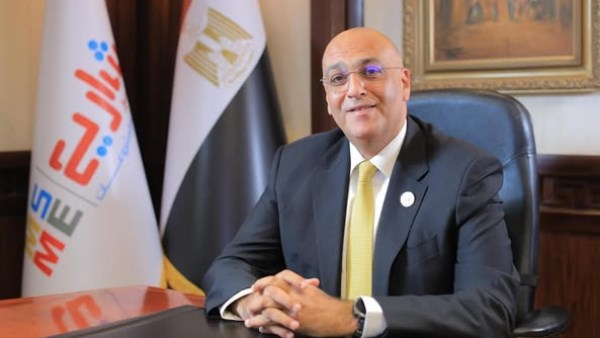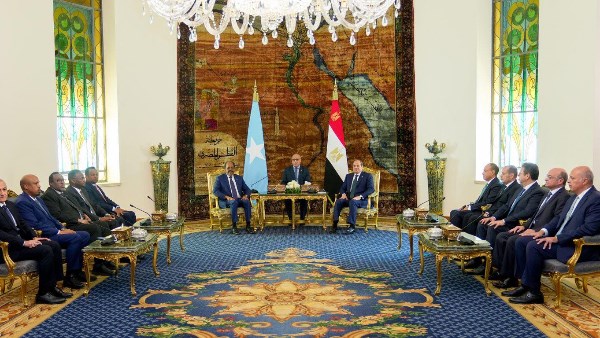
Money managers are already bracing for what comes next
Sisi’s Post-Election Moves Critical for Egypt’s Troubled Markets

Investors are all but certain they know what to expect out of Egypt’s barely-contested election: President Abdel-Fattah El-Sisi will win again، and then soon be forced to oversee a painful devaluation of the currency.
Money managers are bracing for what comes next
As voters head to the polls in the world’s most-populous Arab nation، money managers are already bracing for what comes next. Egypt’s ailing economy has been propped up by tens of billions of dollars in aid from the International Monetary Fund and wealthy neighbors in the Gulf Cooperation Council.
But its overseas bonds have signaled distress for much of the past year، and further devaluations are likely needed in the local pound to unlock more bailout financing. Questions are also swirling given Egypt’s strategic importance as war rages on in nearby Gaza.
“No one is expecting anything other than a Sisi victory،” said Abdul Kadir Hussain، managing director of fixed income at Arqaam Capital Limited in Dubai. “As for what follows، I think the market is expecting IMF and GCC support — and possibly even US and EU support، depending on how the the tragedy in Gaza unfolds.”
The IMF is considering adding even more financing to its aid package for Egypt، potentially increasing its program to more than $5 billion from the planned $3 billion. Egypt is already the IMF’s second-biggest borrower after serial defaulter Argentina.
Securing more money from Arab allies
Speculation is also building that Egypt will secure more money from Arab allies in the GCC، and even the West، as the country becomes a crucial gateway for aid to reach Gaza amid Israel’s war with Hamas.
The most important prerequisite for some of that capital to be unleashed، however، hinges on the loosening of controls over the foreign-exchange market — if not a complete liberalization.
While the pound has lost about half of its value against the dollar since March 2022، traders in the derivatives market are betting the country will be forced to allow it to fall another 40% within the next year. That would put the currency just below 50 per dollar، from 30.85 currently.
“After Sisi’s victory، I’m assuming a 20% devaluation and then bigger IMF funding،” said Charles Robertson، head of macro strategy at FIM Partners. “This is probably positive for Egyptian dollar bonds — and potentially equities، too — if the EGP devaluation is seen as sufficient to clear the FX backlog.”
In the non-deliverable forwards market، the pound’s 12-month contract weakened for the first day in six to 47.35 per US dollar.
Notes ticked higher
For the nation’s overseas bonds، the question is whether Egypt can accomplish all that is needed to address its economic and financial-market dislocations.
Optimism that Sisi will attempt as much has helped the notes tick higher over the past week. The extra yield investors demand to hold Egyptian dollar bonds rather than US Treasuries even slipped below the 1،000-basis-point threshold widely seen as an indication of distress.
“The Eurobonds have performed well on the expectation that once risks related to the election are out of the way، the Egyptian government will have more wiggle room and the IMF will respond in kind،” said Adriaan Du Toit، the London-based director of emerging-market economic research at AllianceBernstein. “We think that’s reasonable and that bearish bets are outdated.”
The risk، of course، is that the narrative of a turnaround fades and the bonds relapse if there’s no follow-through by early 2024، said Du Toit.
The extra yield investors demand to own Egyptian sovereign bonds rather than US Treasuries narrowed 12 basis points to 960 on Monday، according to tentative intra-day quotes from JPMorgan Chase & Co.
Hot Money Addiction
At the heart of Egypt’s current fiscal quagmire is a past addiction to so-called hot money، the fickle portfolio flows into stocks and bonds that can leave as quickly as they arrive.
Egypt long offered some of the world’s highest real interest rates in order to attract foreign cash needed to plug its deficit. But that left the country with an onerous debt burden.
For the past decade، Egypt has had to allocate more than half of its tax income to pay interest on its debt. From July to September of this year، interest costs were more than 1.5 times what it collected in taxes، according to data from the finance ministry.
That strategy was sustainable only as long as capital kept coming. When Russia invaded Ukraine in 2022، the hot money not only stopped، but reversed as inflation spiked on costlier imports of key commodities، from wheat to oil. Net flows of portfolio investment declined to $3.8 billion in the 2022 to 2023 fiscal year، from $21 billion in the prior period.
Putting economy back on track
Egypt has since been trying to put its economy back on track and again lure investors to the country. But both Fitch Ratings and Moody’s Investors Service downgraded the country’s credit rating in recent months، citing persistent foreign currency shortages and costly debt.
All together، these risks — and the surge in global interest rates — left Egypt devoid of the dollars it needs to pay for imported staples and forced it into devaluations.
Significant widening between the local currency’s spot rate and parallel-market rate points to rising pressures، further validating the need for additional devaluations، Deutsche Bank AG strategists including Christian Wietoska wrote in a note on Dec. 6.
“A new round of devaluation is likely to take place after the presidential elections and around the completion of the IMF reviews in early 2024،” they wrote.





-1120252475029447.jpg)















